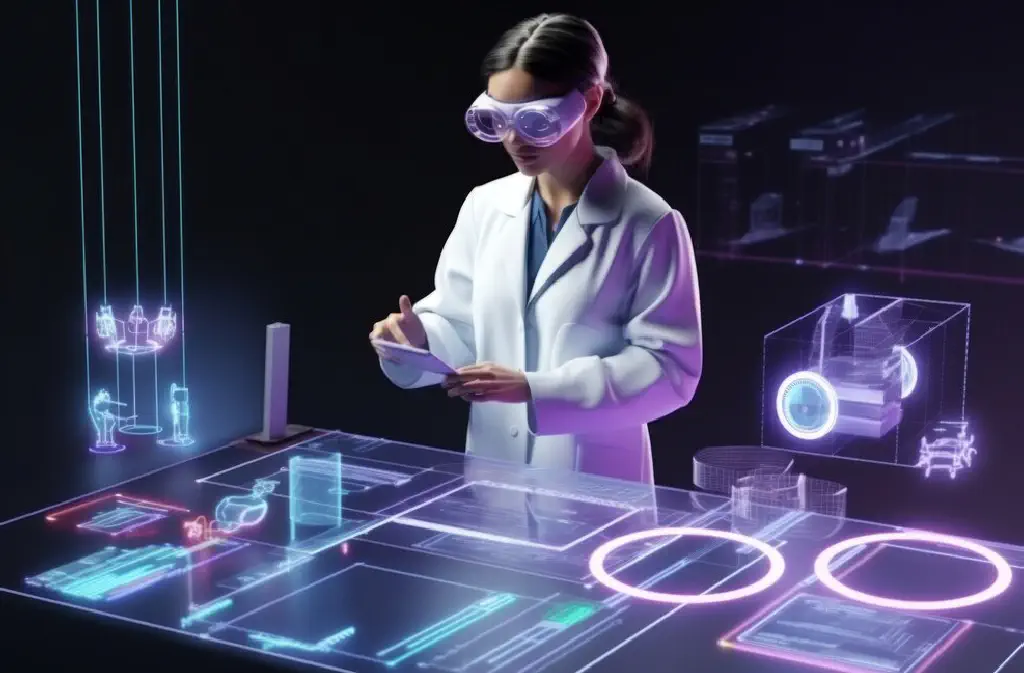
7 Surprising Ways Big Data Improves Disability Care
Assistive Technology Partners – In today’s world, technology moves faster than ever, and healthcare is no exception. For people with disabilities, the rise of data-driven solutions has created opportunities that once felt impossible. The idea that big data improves disability care may sound like a buzzword at first, but the reality is far more exciting. From personalized treatment to predicting medical emergencies, the influence of data is reshaping how support is delivered. The fascinating part is how everyday digital interactions are being transformed into powerful insights. That’s exactly why big data improves disability care in ways most people never imagined.
Read More : The Future of Telecom: AI, Blockchain, and Beyond
One of the most powerful ways big data improves disability care is through personalization. In the past, treatment plans often followed a one-size-fits-all approach. Now, with access to massive datasets, doctors and caregivers can design unique strategies tailored to each individual. Imagine a prosthetic device that adjusts automatically based on data about a person’s movement patterns. That’s no longer science fiction—it’s happening now. Because big data improves disability care by creating systems that learn and adapt, people with disabilities receive support that actually matches their daily needs instead of generic assumptions.
Another surprising benefit is the ability to predict problems before they occur. By analyzing health records, wearable device data, and environmental factors, big data improves disability care by detecting patterns that signal potential danger. For instance, a smart wheelchair could alert a caregiver if a user’s heart rate shows signs of stress, preventing accidents before they happen. The power of prediction means more independence and less fear for those who rely on assistive devices. In this way, big data improves disability care not just by reacting, but by proactively protecting lives.
Rehabilitation is often a long and frustrating process, but data makes it smarter. Through continuous monitoring, therapists can see exactly how patients respond to specific exercises. This is where big data improves disability care by fine-tuning rehabilitation programs in real time. Instead of waiting weeks to evaluate progress, therapists can adjust immediately. That keeps motivation high and recovery faster. The beauty is that big data improves disability care by bridging the gap between effort and results, making rehab more engaging and effective for patients.
The tools people use daily are becoming more intelligent thanks to data. From hearing aids that adapt to background noise to prosthetics that move with fluid precision, big data improves disability care by powering these innovations. Assistive devices no longer operate in isolation; they collect and share information to refine their performance. As more people use them, the devices themselves evolve. This creates a feedback loop where big data improves disability care not just for one person, but for everyone who benefits from upgraded designs.
Disability care is not only physical it’s emotional too. Depression, anxiety, and isolation are common challenges. By tracking communication patterns, online behavior, and even subtle changes in tone during conversations, big data improves disability by identifying mental health risks earlier. Imagine an AI-powered companion app that notices when someone withdraws socially and gently encourages them to connect with a counselor. That’s the kind of innovation happening now. The surprising truth is that big data improves disability care by supporting mental well-being, not just medical needs.
Accessibility doesn’t end at hospitals or homes—it extends into society. Big data improves disability care by shaping smarter cities. Through data analysis, urban planners can identify areas where accessibility is lacking, such as sidewalks that are too narrow or buildings without ramps. Transportation systems can also adapt, using data to provide real-time updates for wheelchair-accessible routes. This is how big data improves disability care on a societal level, ensuring communities are built with inclusivity in mind. What once was an afterthought is now a priority thanks to data insights.
Looking ahead, it’s clear that big data improves disability care in ways that are only beginning to unfold. The potential for AI-powered diagnostics, real-time monitoring, and global data-sharing networks means the future will be even more inclusive. What makes this exciting is that every dataset contributes to better care for everyone. The lesson is simple: when information is harnessed with compassion and innovation, big data improves disability care by turning possibilities into realities. For people with disabilities, that means a life with more independence, safety, and dignity.
Assistive Technology Partners - alat bantu komunikasi sosial memberikan dampak besar dalam meningkatkan kualitas interaksi sosial di masyarakat. Inovasi teknologi…
Assistive Technology Partners - Berbagai organisasi yang menangani alat kesehatan disabilitas indonesia terus meningkatkan peran mereka dalam menyediakan akses peralatan…
Assistive Technology Partners - Inovasi alat bantu disabilitas cerdas terus berkembang di Indonesia, menghadirkan solusi yang lebih mandiri dan inklusif…
Assistive Technology Partners - Pengembangan alat bantu dan layanan penunjang sebagai bagian dari alat kesehatan disabilitas inklusif menjadi penentu utama…
Assistive Technology Partners - Penerapan AI alat bantu mobilitas pada 2026 berkembang pesat, menghadirkan kursi roda cerdas, eksoskeleton adaptif, dan…
Assistive Technology Partners - Peran terapi okupasi penggunaan alat bantu menjadi kunci agar pasien dengan keterbatasan fisik, kognitif, atau sensorik…